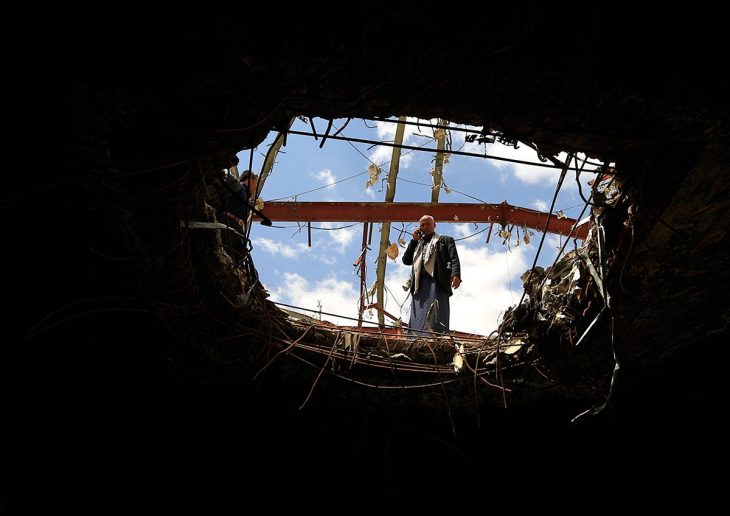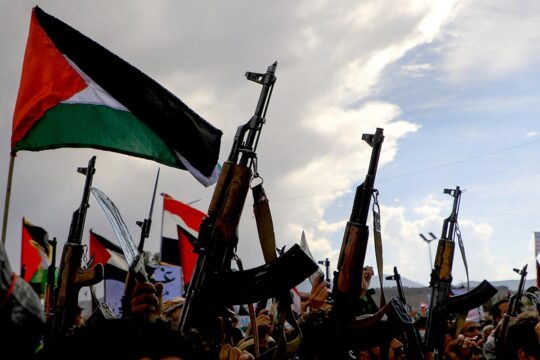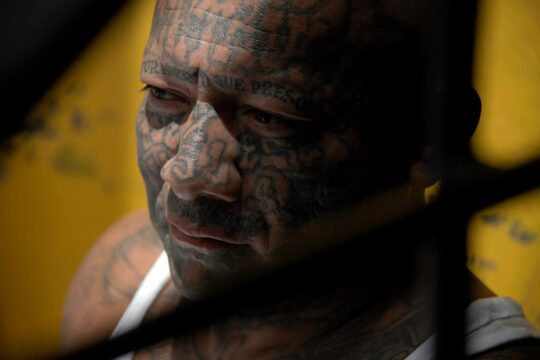The conflict in Yemen has been framed mainly in international media as a humanitarian issue, with intervention needed to prevent civilian starvation, as an unfortunate by-product of the war. Nonetheless since the Houthi power grab in 2015 which sparked intervention from neighbouring Saudi Arabia supported by Gulf ally the United Arab Emirates (UAE), 100,000 people are estimated to have been killed, including more than 12,000 civilians, as well as an estimated 85,000 dead as a result of the famine.
Two recent initiatives concerned with alleged war crimes in Yemen are of note. In the United Kingdom, a law firm has filed a complaint against UAE officials. It will be up to the courts to decide if indeed there is sufficient evidence to arrest political and military heads if they visit London, Washington or Ankara.
Meanwhile in The Hague, the European Center for Constitutional and Human Rights (ECCHR) is trying for a prosecution at the International Criminal Court (ICC) of the heads of European arms manufacturers.
Where do weapons come from?
The ICC route is tortuous because as a treaty organisation, unless the United Nations Security Council steps in, only crimes in member states and those committed by their nationals can come under its aegis. Many of the “article 15 declarations” – when NGOs and lawyers send communications to ask the court to investigate – turn into nothing because of these geographically tight restrictions.
At the end of last year, the ECCHR along with several partner organizations – Mwatana for Human Rights from Yemen, and other international groups – tried to find a way around the simple fact that neither Yemen nor Saudi Arabia nor UAE are members of the court. They are calling on the ICC to investigate whether European arms companies and European government ministers and officials, through authorizing and exporting arms, to the military coalition led by Riyadh and Abu Dhabi, have committed war crimes.
This is a “new avenue” says Miriam Saage-Maaß, head of ECCHR’s Business and Human Rights program. In their communication to the ICC the ECCHR and their partners ask the Office of the Prosecutor to investigate 26 incidents of “airstrikes on residential buildings, schools, hospitals, a museum and world heritage sites” which would be war crimes because they are “intentionally directing attacks against the civilian population and against buildings dedicated to education, art, historic monuments, hospitals and places where the sick and wounded are collected.” Saage-Maaß points out that “to commit war crimes, usually you need weapons, so the question is where do those weapons come from.”
Lessons from Nuremberg
Since this is a war characterised by massive bombing campaigns, they have targeted “companies involved in the production of Eurofighter Typhoon military aircrafts, the Tornado and Mirage aircraft, and refueling planes, as well as the subsequent exports of spare parts and maintenance to keep these aircrafts operational during the course of the conflict”. Specifically: Airbus Defence and Space S.A. (Spain), Airbus Defence and Space GmbH (Germany), BAE Systems Plc. (UK), Leonardo S.p.A. (Italy), and Dassault Aviation S.A. (France).
“If you are providing the means for warfare and potentially also for the commission of war crimes, could that not be framed as aiding and abetting, as giving assistance to the main perpetrator of the crime?” asks Saage-Maaß. “Then the question [for aiding and abetting] is: what is a substantial contribution to those crimes?”
To answer that they have looked beyond ICC jurisprudence, back, for example, to the Nuremberg trials. Tara van Ho, who lectures on business and human rights at Essex University, rates the chance of success of this aiding and abetting approach relatively high, based on her work on such precedents. There were “several successful criminal prosecutions of business leaders” at the Nuremberg trials, she says, who were prosecuted for a wide range of activities, including “pillaging, using slave labour from the concentration camps, and the production of chemicals used to carry out the Holocaust.”
She points out that “some of the prosecutions resulted in convictions but others did not,” depending on whether “the business leaders had a real choice as to whether they participated. Where the business leaders were legally required to act in a way – and where they faced severe punishment for non-compliance – they were not convicted. Where they were not required to act in a certain way – where they took advantage of the law or of the Nazi regime – then they were convicted for their participation in those crimes.”
 EUROPE’S DIRTY HANDS WITH MIRIAM SAAGE-MAAß
EUROPE’S DIRTY HANDS WITH MIRIAM SAAGE-MAAß
Listen to the podcast proposed by Janet H. Anderson and Stephanie van den Berg on their blog Asymmetrical Haircuts, partner of Justice Info.
The precedents in The Netherlands
She suggests that this is “significant” in the context of any attempted prosecution on Yemen “because the businesses that are selling weapons to Saudi Arabia are not required to do so; they are supplying these weapons because they are prioritizing the short-term business gain from those sales. This suggests that they cannot rely on the surface legality of a sale or on Saudi Arabia’s position as a recognized government to justify their actions. They would need to show that they didn’t have reason to know or believe that their weapons would be used to commit war crimes.”
These organizations hope that this might strip away the standard corporate executive defence of political and legal neutrality. However, Van Ho says that’s a “hard defence” to muster. She points to recent prosecutions of business leaders by Dutch courts. Frans van Anraat was convicted for selling mustard gas components to Saddam Hussein's regime in Iraq and Guus Kouwenhoven was convicted for smuggling weapons and aiding and abetting war crimes during the Liberian civil war in the 1990s.
“They were successful because the prosecution could show that the two business leaders supplied the chemicals or weapons with the knowledge of how they would be used,” stresses Van Ho. And even though Van Anraat sold components that were not prohibited by international or domestic Dutch law, “the Court found he sold them with the knowledge that they would be used to make mustard gas and that was sufficient to convict him of complicity to commit war crimes.”
Before the ICC, a high burden of proof
Saage-Maaß sees parallels with current heads of European arms companies: “They are in the business of selling arms. And that means they a lot of times have very close ties to the governments they're selling the arms too. And they are actually well informed about all the conflicts ongoing in this world. If you're doing business with the Congo for 25 years, obviously you know what's going on there. But they just don't consider it their responsibility to care. I think that's something we really want to change.”
Van Ho agrees that “prosecutors will need to show that the individual leader was engaged in specific conduct involving that sale and that they did so with knowledge that [the buyer] was going to use the weapons to commit war crimes.”
“The International Criminal Court statute has comparatively high standards for aiding and abetting, and that is something we've been wrestling with,” posits Saage-Maaß. “You need to be showing or ask yourself : Has there been a substantial contribution to the commission of the main crime?” That is a high burden of proof, but Van Ho says it’s “not insurmountable”.
A complex choice for the European Union
If the ICC wants to be credible, argues Saage-Maaß, and if those countries that are supported the court want to be credible, “they must be willing to apply the standards of the International Criminal Court also to citizens of their countries. There cannot be double standards in international criminal law. So, you know, you may go after the war criminals all over the world, but you must be also looking at the responsibility of Western actors.”
Gulf specialist Patrick de Vries describes a complex balancing act for foreign policy decision-makers in the European Union, where countries are “continuing to conduct arms sales to Saudi Arabia on the one hand, while continuing to highlight the humanitarian situation”. He sets these concerns against the bigger picture of geo-political manoeuvring in the Gulf from players such as Russia, China and the U.S. putting their national interests first, and against Riyadh and Abu Dhabi’s concern to both counter radical Islam, a regional Iranian threat and to shore up their own economic future and political stability. It is therefore not surprising that allegations of aiding and abetting war crimes in the Yemen war have not been high on European capital’s agendas.







